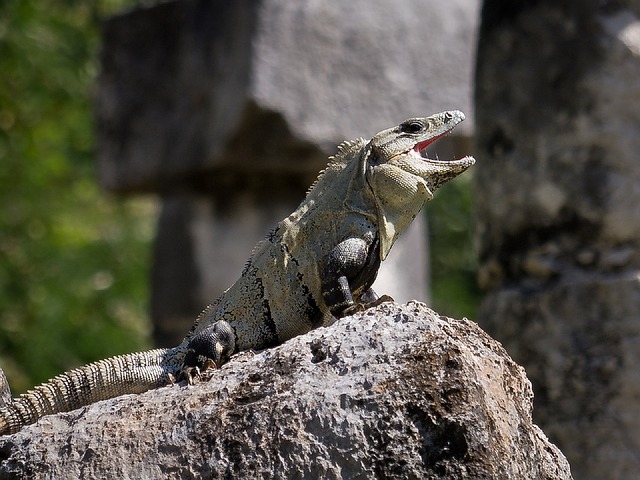Climate change might affect lizards the worst, a new study suggests. Many of the reptiles, which are already expected to be hit hard by the current environmental turns, might even become extinct by 2080.
Lizards are extremely sensitive to global warming because they use their environment to regulate body temperature. They sunbathe then cool off in the shade. Experts had predicted that at the rate things are going, around 40% of the world’s lizards will die, which amounts to 20% of all lizard species going extinct, NPR reports.
Michael Sears, the lead author on the study and a biologist at Clemson University, says those predictions were based on certain theories regarding how quickly lizards can find shade. Sears says,
The thing that those models assumed is that the lizard can find a piece of shade anywhere in the environment instantly if it needed it.
In reality, it takes a lizard time and energy to find shade, meaning these models could be off-base in their calculations.
Sears and his colleagues decided to look further into the situation and did a recent study using computer modeling and real-world experiments. They wanted to confirm how the kind of shade a lizard finds affects its ability to keep its body temperature in check.
The researchers surgically implanted small temperature sensors into dozens of spiny lizards. They conducted their experiments in special areas in the New Mexico desert. “We use these pieces of shade cloth to cool down temperatures in spots to see how the animals react to it,” Sears explains.
The experiment results showed that the lizards did better when they could find plenty of small patches of shade, compared to a few large patches. Sears likened it to finding a few small trees providing shade every few meters while jogging, as opposed to one large tree every kilometer.
Sears’ study shows that predicting the future for lizards is more complicated than scientists previously thought, as each lizard population is affected by how plants and rocky outcroppings are distributed in their habitats.
Lizards that live in warm places will suffer from increasing temperatures, while lizards in cooler areas might even benefit in some way.
The study was published in the Proceedings of the National Academy of Sciences.
























